- You are here:
- Home »
- Food Substitutes
- » Best Substitutes For White Wine
Best Substitutes For White Wine

White wine is a versatile ingredient that is commonly used in cooking to add depth of flavor to various dishes. It lends acidity and sweetness, which can enhance the taste of sauces, marinades, and even desserts. However, there may be times when you find yourself in a situation where you don’t have white wine on hand or would prefer not to use it for personal reasons. In such cases, it’s helpful to know the best substitutes for white wine that can deliver similar flavors and aromas to your dishes.
Key Takeaways
- White wine is often used in cooking to add acidity, sweetness, and depth of flavor to dishes.
- There are several reasons why you might need a substitute for white wine, such as not having it on hand or wanting to avoid alcohol.
- The best substitutes for white wine include white grape juice, apple cider vinegar, chicken or vegetable broth, lemon juice, and rice vinegar.
- When choosing a substitute, consider the flavor profile, acidity, and sweetness of the white wine called for in the recipe.
- Cooking with substitutes for white wine may require some adjustments in quantities and cooking times.
- There are many delicious recipes that you can try using substitutes for white wine.
Why You Need A Substitute For White Wine
There are multiple reasons why you might need a substitute for white wine when cooking. These include:
-
Unavailability: You may find yourself in a situation where you simply don’t have white wine on hand. This could be due to an impromptu cooking session or forgetting to stock up on white wine.
-
Prefer not to use alcohol: Some people may not prefer to consume alcohol or may be cooking for individuals who avoid alcohol. In such cases, using a substitute for white wine allows you to achieve similar flavors without the alcohol content.
-
Allergic reactions: Some individuals may be allergic to certain components found in white wine, such as sulfites. Using a substitute allows you to enjoy the flavors in your dishes without any adverse reactions.
-
Personal taste: While white wine adds distinct flavors to dishes, it may not be to everyone’s taste. Using a substitute allows you to customize the flavors according to your preference.
Types Of Substitutes For White Wine
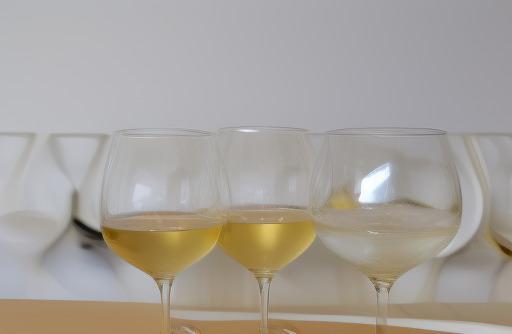
When it comes to substituting white wine in cooking, there are various options to choose from. The best substitutes share similar characteristics to white wine, such as acidity, sweetness, and depth of flavor. Here are some commonly used substitutes for white wine:
-
White Grape Juice: White grape juice is an excellent non-alcoholic substitute for white wine. It offers a similar level of sweetness and acidity. Opt for 100% pure white grape juice without any added sugars or flavors for the best results.
-
Apple Cider Vinegar: Apple cider vinegar is a versatile ingredient that can provide a tangy acidity similar to white wine. It has a slightly fruity flavor that can complement both sweet and savory dishes. Use it in moderation to avoid overpowering the flavors of your dish.
-
Chicken or Vegetable Broth: Both chicken and vegetable broth can be used as substitutes for white wine in recipes that call for a savory flavor. Broth adds depth and richness to sauces and soups while providing a savory element that complements various dishes.
-
Lemon Juice: Lemon juice is a common substitute for white wine because of its high acidity. It can add brightness and tang to your dishes, especially seafood and poultry recipes. It’s best to use freshly squeezed lemon juice to ensure the most authentic flavor.
-
Rice Vinegar: If you’re looking for a substitute with a slightly milder flavor, rice vinegar can be an excellent option. It is less tart and acidic compared to other vinegars and can provide a subtle sweetness to your dishes. Use it in moderation, as it can have a more pronounced flavor than white wine.
Best Substitutes For White Wine
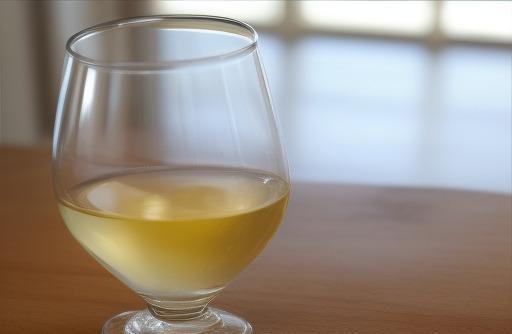
When it comes to choosing the best substitute for white wine in your recipes, it’s important to consider the specific flavors and characteristics of the white wine called for in the recipe. Here are some recommended substitutes based on common white wine profiles:
-
Dry White Wine: Dry white wine, such as Sauvignon Blanc or Pinot Grigio, is often used in recipes that require a crisp and acidic flavor. For a similar profile, substitute with an equal amount of white grape juice or apple cider vinegar. These substitutes will provide the necessary acidity without adding any additional sweetness.
-
Sweet White Wine: Sweet white wines, like Riesling or Moscato, have a higher sugar content and contribute fruity flavors to a dish. For a suitable substitute, try using white grape juice or a combination of lemon juice and a sweetener like honey or agave syrup. Adjust the sweetener according to your taste preference.
-
Sparkling White Wine: Sparkling white wines, such as Champagne or Prosecco, are known for their effervescence and acidity. To mimic these qualities, consider using a combination of seltzer water and white grape juice. This will provide a similar bubbly texture and a touch of sweetness.
Remember, the key is to experiment and adjust the quantities of the substitutes based on your personal taste preferences and the specific dish you’re preparing.
Choosing The Right Substitute For White Wine
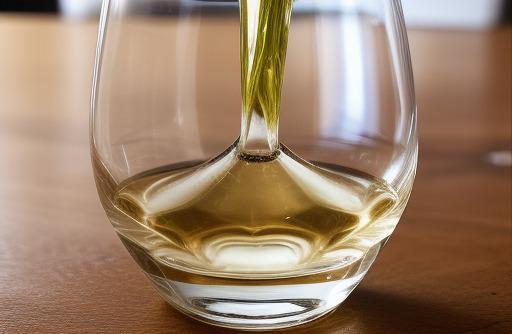
While the substitutes mentioned above can work well in most recipes, it’s essential to choose the right substitute based on the flavors you want to achieve. Here are some tips to help you choose the best substitute for white wine:
-
Consider acidity: White wine contributes acidity to a dish, so it’s vital to replicate this characteristic in your substitute. If the recipe calls for a tangy flavor, opt for substitutes like apple cider vinegar or lemon juice. If you need a milder acidity, rice vinegar can be a good choice.
-
Balance sweetness: Pay attention to the sweetness level of the white wine in the recipe. If the wine provides sweetness, choose a substitute like white grape juice or a sweetener like honey or agave syrup. For recipes that require a drier taste, opt for substitutes without added sugars.
-
Match flavors: Consider the flavors in the dish and select a substitute that will complement or enhance them. For example, if you’re cooking seafood, lemon juice can provide a fresh and citrusy flavor. If you’re preparing a rich sauce, a savory substitute like chicken or vegetable broth can add depth and richness.
-
Experiment: Cooking is all about experimentation and personal preference. Don’t be afraid to try different substitutes and adjust the amounts to suit your taste buds. Keep notes of your substitutions and their results, so you can make improvements in future cooking endeavors.
Cooking With Substitutes For White Wine
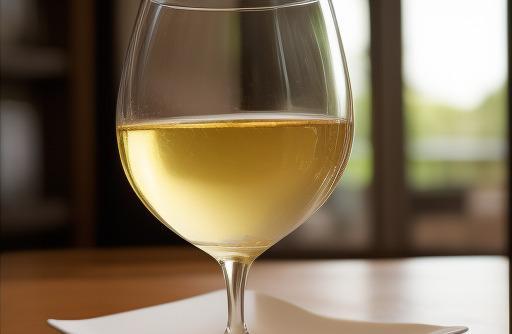
Using substitutes for white wine in cooking requires some adjustments in quantities and cooking techniques. Here are some guidelines to follow when cooking with substitutes:
-
Quantity: Substitute the white wine called for in the recipe with an equal amount of the chosen substitute. For example, if a recipe calls for 1/2 cup of white wine, use 1/2 cup of the substitute.
-
Taste as you go: When using substitutes, it’s important to taste the dish as you cook. This will allow you to adjust the flavors and make any necessary modifications. Add the substitute gradually and taste test until you achieve the desired balance of flavors.
-
Reduce or increase liquid: Depending on the substitute used, you may need to adjust the amount of liquid in the recipe. If using a substitute with higher water content (such as white grape juice or lemon juice), you may need to reduce the overall liquid in the recipe to maintain the desired consistency. Conversely, if using a substitute with lower water content (such as broth or vinegar), you may need to increase the amount of liquid to achieve the desired consistency.
-
Cooking time: Some substitutes may require longer cooking times to mellow out their flavors. For example, apple cider vinegar can be quite strong when used in larger quantities, but it mellows out with longer cooking. Keep this in mind and monitor the cooking process, making any necessary adjustments.
Recipes Using Substitutes For White Wine
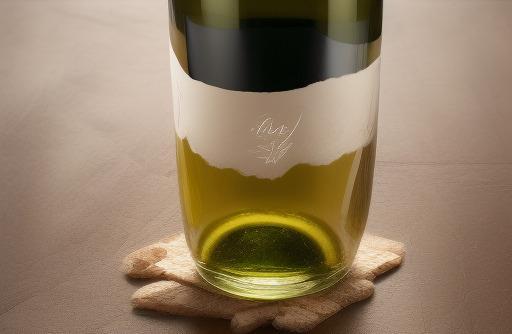
Now that you’re familiar with the best substitutes for white wine and how to cook with them, here are a few delicious recipes you can try:
-
Lemon Garlic Chicken: Instead of using white wine, marinate chicken breasts in a mixture of freshly squeezed lemon juice, garlic, olive oil, and a touch of honey. This will add a tangy and sweet flavor to the chicken.
-
Creamy Mushroom Pasta: Sautee mushrooms in butter, garlic, and diced shallots. Instead of white wine, deglaze the pan with vegetable broth or a combination of chicken broth and lemon juice. Add cream and parmesan cheese to create a creamy sauce that pairs perfectly with pasta.
-
Roasted Vegetables: Toss your favorite vegetables, such as bell peppers, zucchini, and cherry tomatoes, with olive oil, minced garlic, and herbs. Instead of white wine, drizzle the vegetables with a mixture of lemon juice and olive oil before roasting. This will infuse the dish with a tangy and aromatic flavor.
Storage And Shelf Life Of Substitutes
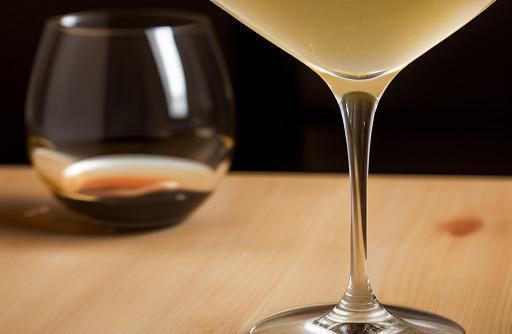
When using substitutes for white wine, it’s important to know about their storage and shelf life:
- White Grape Juice: Store in the refrigerator after opening and use within one week.
- Apple Cider Vinegar: Store in a cool, dark place, such as a pantry or cupboard. It has an almost indefinite shelf life due to its acidic nature.
- Chicken or Vegetable Broth: Store in the refrigerator after opening and use within one week.
- Lemon Juice: Store in the refrigerator after opening and use within one week.
- Rice Vinegar: Store in a cool, dark place, such as a pantry or cupboard. It has a shelf life of one to two years.
Remember to check the labels and follow the storage instructions provided by the manufacturers for each substitute.
Pro Tip: To add depth of flavor to a dish when substituting white wine, consider adding a small amount of soy sauce or Worcestershire sauce. These can help enhance the umami taste and provide a richer profile to your dish.
FAQS
What Are The Best Substitutes For White Wine For Cooking?
There are various substitutes for white wine that can be used in cooking, including chicken or vegetable broth, apple cider vinegar, lemon juice, white grape juice, or dry vermouth, among others. The best one to use depends on the recipe and personal preference.
Can I Use Apple Cider Vinegar As A Substitute For White Wine?
Yes, apple cider vinegar is a good substitute for white wine in cooking, as it has a similar acidity and taste. However, it is important to dilute it with water or broth to avoid overpowering the dish or adding too much sourness.
Is Lemon Juice A Good Substitute For White Wine In Cooking?
Yes, lemon juice can be used as a substitute for white wine in cooking, especially in dishes that require a citrusy tang or acidity. However, it is essential to use it in moderation, as excessive amounts can alter the balance of flavors.
Can I Substitute Dry Vermouth For White Wine In Recipes?
Yes, dry vermouth can be used as a substitute for white wine in recipes that require a dry, light-bodied wine. It has a similar aroma and flavor profile to white wine, with a slightly herbal and bitter undertone.
What Is A Good Non-alcoholic Substitute For White Wine In Cooking?
White grape juice is a good non-alcoholic substitute for white wine in cooking, as it has a similar fruity and acidic taste. Other options include apple juice or white wine vinegar, depending on the recipe and personal taste.
Sources
About the Author Jenny
I'm Jenny, a housewife with an unwavering passion for food. My culinary journey began with my grandmother's kitchen, and it's now a full-fledged food blog. I've turned my love for cooking into a creative outlet, sharing recipes and stories with a global community of fellow food enthusiasts. It's proof that being a housewife can also mean pursuing your passions and savoring life's delectable moments.
